These Celebrities Got Offered Major Awards And Honors, And Said, 'Nah, I'm Good, Thanks'
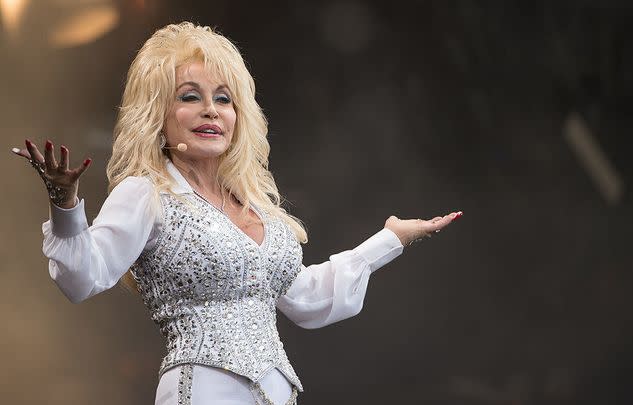
Ian Gavan / Getty Images
In 2022, Dolly Parton warmly declined her nomination for inclusion in the Rock & Roll Hall of Fame.

David Redfern / Redferns / via Getty
In a tweeted statement, Parton wrote, "Dolly here! Even though I am extremely flattered and grateful to be nominated for the Rock & Roll Hall of Fame, I don't feel that I have earned that right. I really do not want votes to be split because of me, so I must respectfully bow out."

Jason Kempin / Getty Images
She continued, "I do hope that the Rock & Roll Hall of Fame will understand and be willing to consider me again — if I'm ever worthy. This has, however, inspired me to put out a hopefully great rock 'n' roll album at some point in the future, which I have always wanted to do! My husband is a total rock 'n' roll freak, and has always encouraged me to do one. I wish all of the nominees good luck, and thank you again for the compliment. Rock on!"
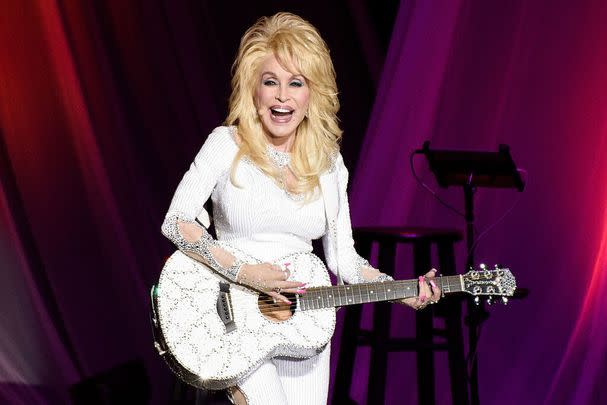
Daniel Boczarski / Getty Images
A few days later, the Rock & Roll Hall of Fame tweeted out a statement of their own. While noting that Parton's "humility" is part of what makes her a "beloved icon," and that they are "in awe of Dolly's brilliant talent and pioneering spirit," they essentially — and equally as warmly — confirmed that she would remain a nominee.

NBC / NBCU Photo Bank / NBCUniversal via Getty Images
The powers-that-be at the Hall of Fame wrote, "From its inception, Rock & Roll has had deep roots in Rhythm & Blues and Country music. It is not defined by any one genre, rather a sound that moves youth culture. Dolly Parton's music impacted a generation of young fans and influenced countless artists that followed. ... Dolly's nomination, along with the other 16 for the class of 2022 was sent out earlier this month to our 1,200 general ballot voters, the majority of whom are artists themselves, for consideration for induction at our ceremony."
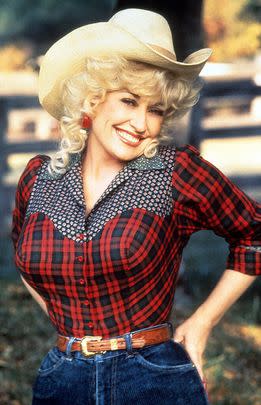
20th Century Fox / Getty Images
Dolly Parton apparently has a bit of a history in the "thanks, but no thanks" department, since she turned down the Presidential Medal of Freedom. Two times.

Harry Langdon / Getty Images
In an 2021 interview on "Today," Parton said that the Trump administration tried to give her the award on two different occasions. She explained, "I couldn't accept it because my husband was ill. Then, they asked me again about it, and I wouldn't travel because of COVID. So, now I feel like if I take it, I'll be doing politics, so I'm not sure."
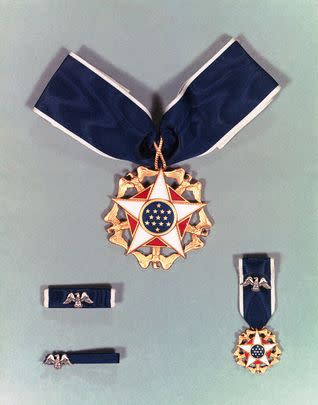
Bettmann / Bettmann Archive / via Getty
She went on, "I don't work for those awards. It'd be nice, but I'm not sure that I even deserve it. But it's a nice compliment for people to think I might deserve it."
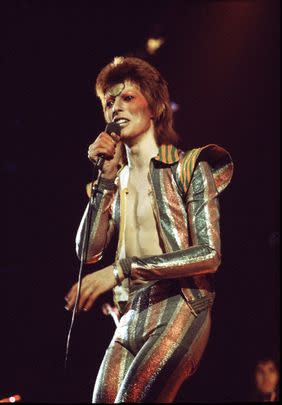
Michael Putland / Getty Images
David Bowie turned down honors from Queen Elizabeth II not once, but twice.

Serge Lemoine / Getty Images
According to the BBC, he first said "nope" to a CBE in 2000. "CBE" is short for "Commander of the Order of the British Empire," and is the "highest ranking" honor of this kind, followed by OBE (Officer of the Order of the British Empire) and MBE (Member of the Order of the British Empire).

Anwar Hussein / WireImage / via Getty
And in 2003, the Queen sweetened the deal by offering Bowie a knighthood. At the time, he told the Sun, "I would never have any intention of accepting anything like that. I seriously don't know what it's for. It's not what I spent my life working for. It's not my place to make a judgment on Jagger; it's his decision. But it's just not for me."
Mick Jagger was offered, and accepted, a knighthood in 2002.
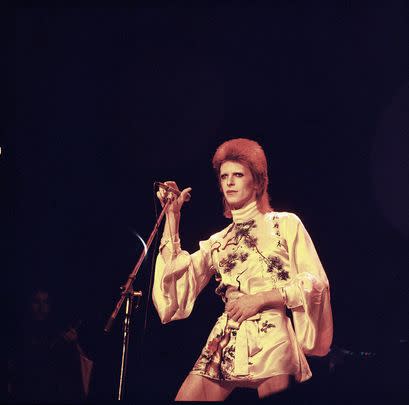
Michael Putland / Getty Images
Bowie declined to say whether he was "anti-monarchy," noting that he could only offer a "serious answer" to that question if he lived in Great Britain and not in the United States.
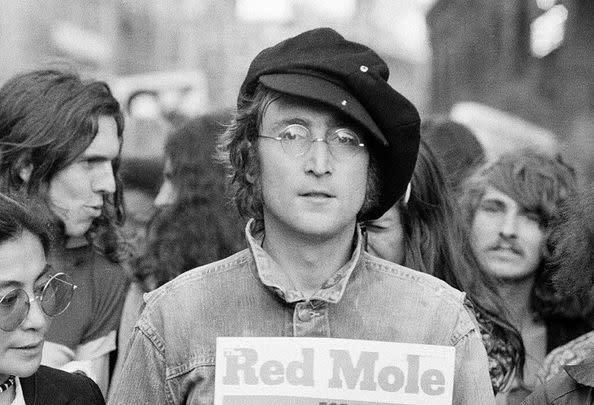
Rowland Scherman / Getty Images
John Lennon, along with the other members of the Beatles, accepted an MBE in 1965...and he gave it right back in 1969.

Michael Putland / Getty Images
According to the Guardian, Lennon sent three letters to the Queen, Prime Minister, and Central Chancery, explaining that he wanted to return the honor "in protest against Britain’s involvement in the Nigeria-Biafra thing, against our support of America in Vietnam, and against 'Cold Turkey' slipping down the charts."

William Vanderson / Getty Images
He signed the letters, "With love, John Lennon." On Lennon's website, the entry about the song "Cold Turkey" includes his reflection on the MBE. According to Lennon, "Taking the MBE was a sell-out for me. You know, before you get an MBE, the Palace writes to you to ask if you’re going to accept it, because you’re not supposed to reject it publicly, and they sound you out first. I chucked the letter in with all the fan-mail, until Brian [Epstein, the Beatles' manager] asked me if I had it. He and a few other people persuaded me that it was in our interests to take it, and it was hypocritical of me to accept it."

Bettmann / Bettmann Archive / via Getty
He went on, "But I’m glad, really, that I did accept it, because it meant that four years later I could use it to make a gesture. We did manage to refuse all sorts of things that people don’t know about." Among these opportunities was returning to play the Royal Variety Show, which Lennon called a "bad gig."
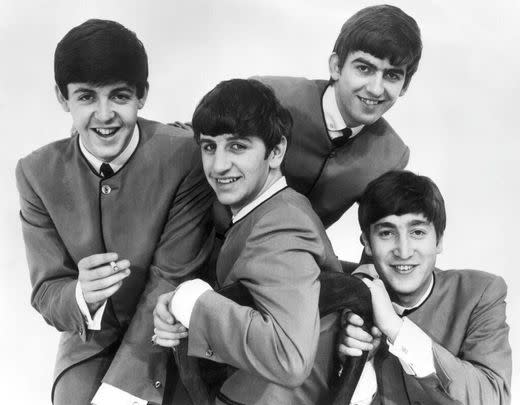
CBS Photo Archive / Getty Images
After Lennon returned the MBE, Cyril Hearn, a former policeman who had returned his own honor in 1965 in protest of the Beatles' inclusion, asked for it back. Said Hearn, "John Lennon has made his point. I think it is a very courageous thing to do, and the balance is redressed." He called awarding the Beatles an MBE in the first place a "prostitution of the Order."

Fox Photos / Getty Images
According to what Beatles’ spokesperson Derek Taylor said at the time, the other members of the band didn't know about Lennon's decision to return the award in advance, and were "not intending to return theirs as well."
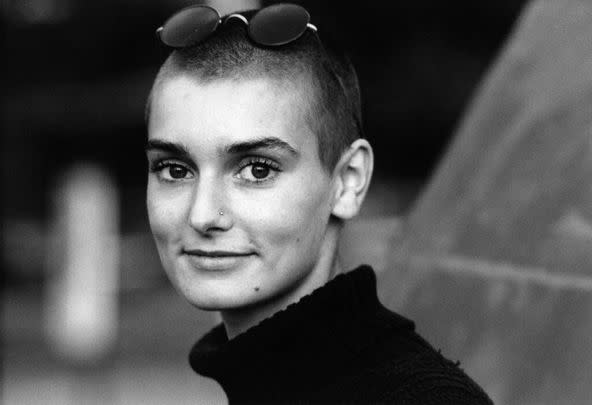
Michel Linssen / Redferns / via Getty
When she was nominated for four Grammy Awards in 1991, Sinéad O'Connor preemptively refused to accept any that she might receive.

Paul Bergen / Redferns / via Getty
According to the L.A. Times, O'Connor wrote a letter to the National Academy of Recording Arts & Sciences that read in part, "As artists I believe our function is to express the feelings of the human race — to always speak the truth and never keep it hidden even though we are operating in a world which does not like the sound of the truth. I believe that our purpose is to inspire and, in some way, guide and heal the human race, of which we are all equal members."
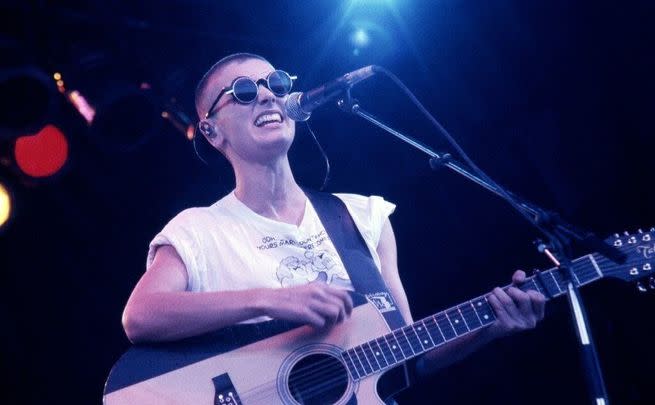
Martyn Goodacre / Getty Images
O'Connor argued that the larger music industry possesses "false and destructive materialistic values," "acknowledge[s] mostly the commercial side of art," and "respect[s] mostly material gain, since that is the main reason for their existence." She wrote, "And they have created a great respect among artists for material gain — by honoring us and exalting us when we achieve it, ignoring for the most part those of us who have not." In an interview, O'Connor clarified, "I am not criticizing the Grammys in particular. I am criticizing the music industry."

Gabriel Bouys / AFP via Getty Images
Despite her boycott, O'Connor still won Best Alternative Music Performance for "I Do Not Want What I Haven't Got," and is listed as the winner on the official Grammys website.
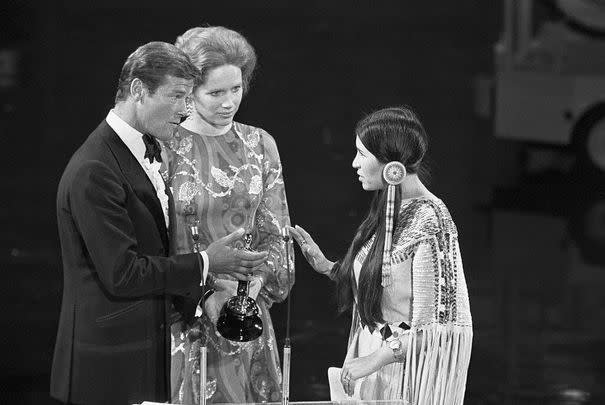
Bettmann / Bettmann Archive / via Getty
When Marlon Brando won the Best Actor Oscar for his role in "The Godfather" in 1973, he famously sent a Native American woman named Sacheen Littlefeather to turn down the award in his place.
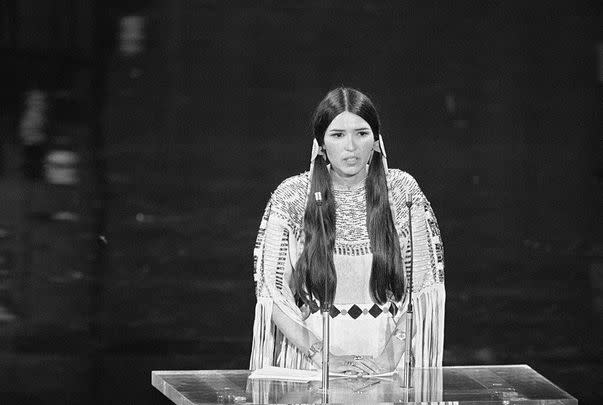
Bettmann / Bettmann Archive / via Getty
According to History, Littlefeather said that Brando decided not to accept the "very generous award" because of the "treatment of American Indians today by the film industry." Littlefeather was booed during her speech.
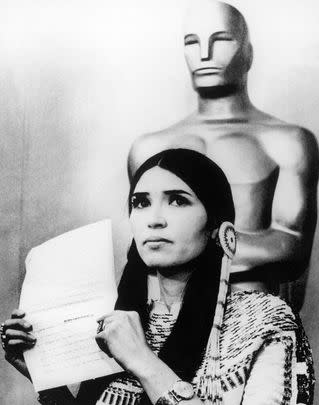
Hulton Archive / Getty Images
In a 2021 interview with the Guardian, Littlefeather said, "It was not a performance; it was a real presentation. I think that’s what took people by surprise: that it was so real. It really touches people’s hearts to this day." Apparently, she got to the ceremony only a few minutes before Brando's win was announced.

Etienne Montes / Gamma-Rapho via Getty Images
She went on, "I didn’t use my fist. I didn’t use swear words. I didn’t raise my voice. But I prayed that my ancestors would help me. I went up there like a warrior woman. I went up there with the grace and the beauty and the courage and the humility of my people. I spoke from my heart."
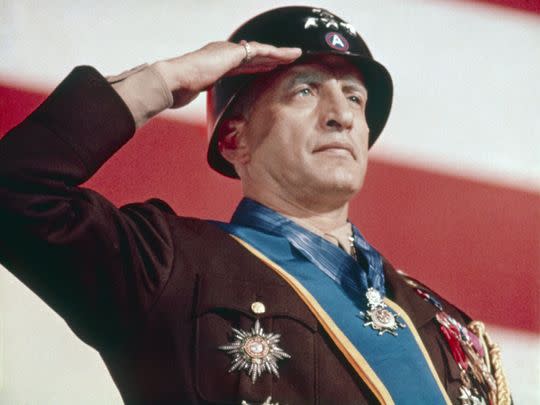
20th Century Fox Film Corp. / Courtesy Everett Collection
A few years earlier, the Oscars experienced another snub when George C. Scott, who had long since promised to never accept an Academy Award, made good on that vow when he won in 1971 for his performance in "Patton."
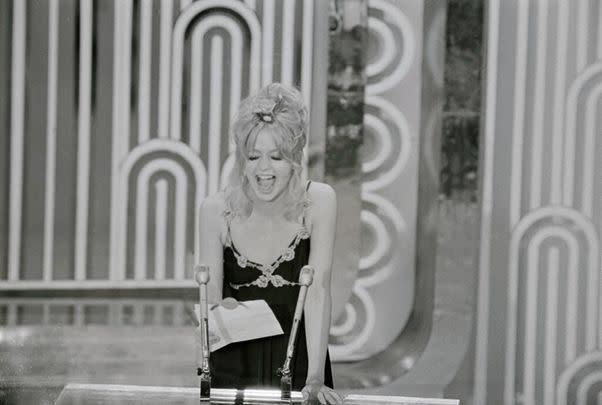
Bettmann / Bettmann Archive / via Getty
Scott "disagreed, on principle, with a competition that pitted actors against each other," according to History. The presenter, Goldie Hawn, said "oh my god" when she opened the envelope.

Bettmann / Bettmann Archive / via Getty
The actor described the ceremony as "a two-hour meat parade, a public display with contrived suspense for economic reasons." Ironically, according to film studies academic Dennis Bingham, Scott's refusal of the award may have unintentionally made the public respect it more.
Pictured is producer Frank McCarthy accepting the award on Scott's behalf.
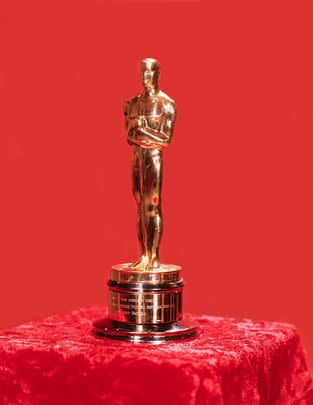
Bettmann / Bettmann Archive / via Getty
Bingham explained, "They took the Oscar to George C. Scott as an opportunity to say, ‘Well, no one buys these awards, sometimes people don’t even want them; we’ll give it to George C. Scott because we just simply thought he was the best.' And so it actually did something to re-legitimize the award in the public’s eyes."
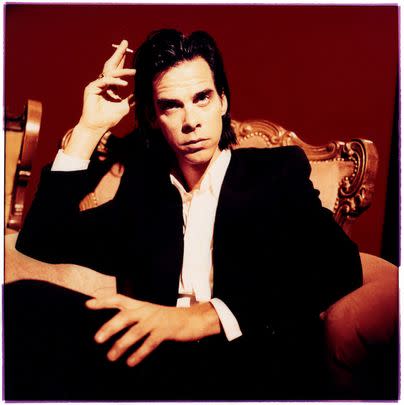
Avalon / Getty Images
In 1996, Nick Cave turned down the MTV Video Music Award in as poetic a fashion possible when they nominated him for Best Male Artist.

Brian Rasic / Hulton Archive / via Getty
Cave thanked MTV for its consideration, but asked that his nomination be withdrawn, and that all possible future nominations and awards instead go to artists who are "more comfortable with the competitive nature of these awards ceremonies."

Bob King / Redferns / via Getty
Kylie Minogue, who sang with Cave on "Where the Wild Roses Grow," read the letter he wrote to MTV for Letters of Note. Cave wrote in part, "I have always been of the opinion that my music is unique and individual and exists beyond the realms inhabited by those who would reduce things to mere measuring. I am in competition with no one. My relationship with my muse is a delicate one at the best of times, and I feel that it is my duty to protect her from influences that may offend her fragile nature. She comes to me with the gift of song, and in return, I treat her with the respect I feel she deserves — in this case, this means not subjecting her to the indignities of judgement and competition."
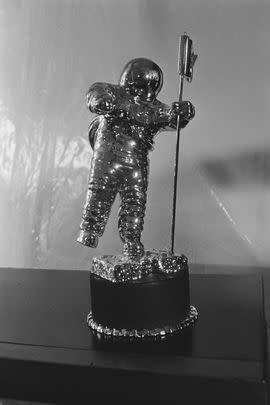
Michael Ochs Archives / Getty Images
He went on, "My muse is not a horse, and I am in no horse race, and if indeed she was, still I would not harness her to this tumbrel — this bloody cart of severed heads and glittering prizes. My muse may spook! May bolt! May abandon me completely!" He concluded the letter by writing, "Again I say thank you, but no…no thank you."
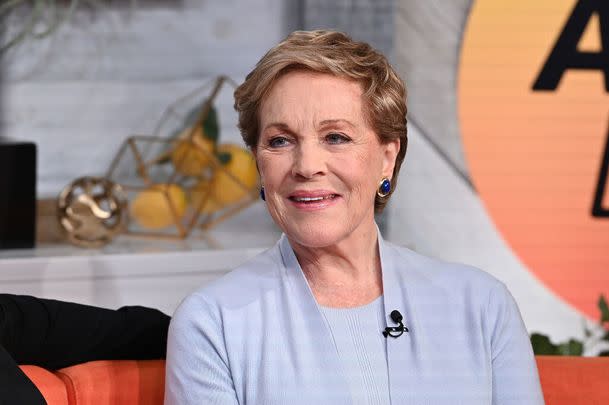
Slaven Vlasic / Getty Images
Julie Andrews said "nope" to a 1996 Tony nomination for her starring performance in "Victor/Victoria" to protest the snubbing of the rest of the show's creative team, which according to Playbill "made headlines around the world."

Barbara Alper / Getty Images
During a curtain call, Andrews said, "I have searched my conscience and my heart and find that I cannot accept this nomination, and prefer instead to stand with the egregiously overlooked." Andrews' husband, Blake Edwards, was the director and librettist of the show.

Jemal Countess / WireImage / via Getty
Andrews was still included on the ballot for Best Actress in a Musical, and is listed as a nominee on the Tony Awards website. Donna Murphy ultimately won for her performance in "The King and I."

Paras Griffin / Getty Images
In December 2021, Drake decided to withdraw both of his 2022 Grammy nominations.
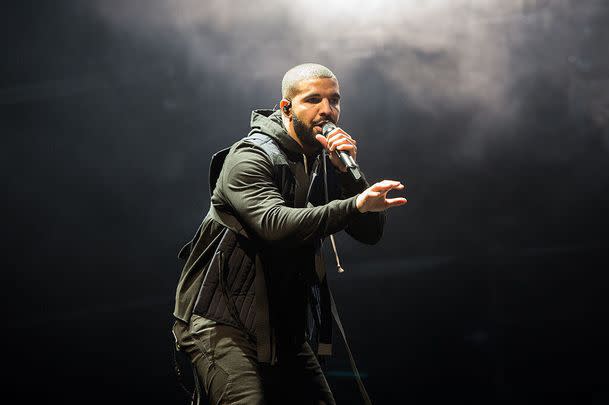
Samir Hussein / WireImage / via Getty
His album "Certified Lover Boy" was up for Best Rap Album, and he was nominated for Best Rap Performance for "Way 2 Sexy."

Kevin Winter / Getty Images
While Drake hasn't yet explained his motivation for declining the nominations, according to Variety, he has had a "long and at times contentious relationship with the Grammys." Following The Weeknd's snub in 2020, he wrote in a statement posted to Instagram, "I think we should stop allowing ourselves to be shocked every year by the disconnect between impactful music and these awards, and just accept that what once was the highest form of recognition may no longer matter to the artists that exist now and the ones that come after. It’s like a relative you keep expecting to fix up, but they just can’t change their ways."
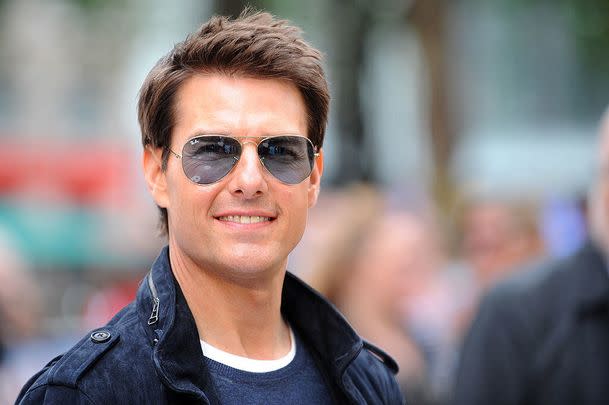
Stuart C. Wilson / Getty Images
And finally: In May 2021, Tom Cruise returned all three of the Golden Globes he'd been awarded throughout his career in an act of protest against the Hollywood Foreign Press Association.

Kim Kulish / AFP via Getty Images
According to Entertainment Weekly, Cruise's decision to return the Globes came amongst renewed criticism of the HFPA's "utter lack of diversity" amongst its membership. At the same time, NBC decided not to air the 2022 ceremony, explaining in a statement that the HFPA needed more time to enact "meaningful reform."

Frazer Harrison / Getty Images


